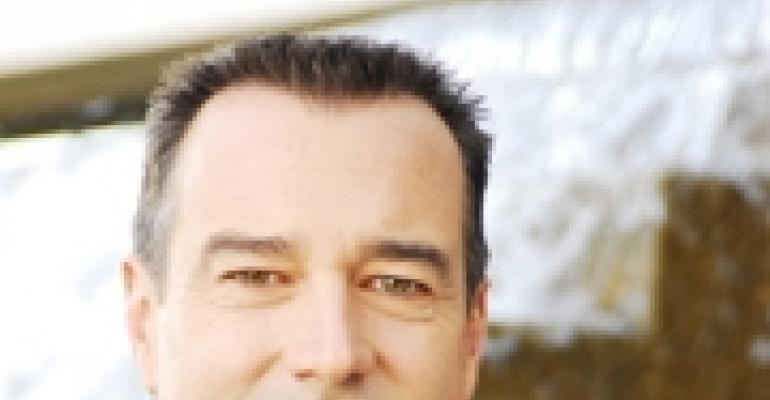
In one of the biggest seniors housing deals of the year, Blackstone Real Estate Advisors and its partners have closed on the $1.2 billion acquisition of the 144-property portfolio previously owned by Salem, Ore.-based Sunwest Management.
Blackstone’s joint-venture partners are publicly traded Emeritus Senior Living and Columbia Pacific Advisors. Don Baty, chairman and co-chief executive of Emeritus, also heads up Columbia Pacific. The new partnership also includes some of the original tenant-in-common (TIC) investors in the Sunwest properties.
Seattle-based Emeritus operates 460 communities, mostly comprised of assisted living units. The stock price of Emeritus (NYSE: ESC) closed Aug. 27 at $17.23, a 3.7% increase from a year ago.
Granger Cobb, president and co-chief executive of Emeritus, recently spoke with NREI at length about the significance of the deal.
NREI: How big is Emeritus now?
Cobb: We were actually the No. 1 assisted living company in number of units managed before this transaction closed. Now we have about 39,000 units and a resident capacity of more than 45,000.
NREI: Why is this a good deal?
Cobb: Occupancy at the Sunwest buildings averages only about 79%, and the monthly revenue per unit is low at $3,100. At the Emeritus buildings, our average occupancy rate is about 87% with monthly revenue at about $3,750. We have an opportunity with the Sunwest assets to increase occupancy and revenue by improving operations.
NREI: Is the timing right?
Cobb: The target demographic is expanding at a regular pace, but the new supply of seniors housing has dried up. It makes sense to acquire additional capacity because the supply/demand balance should run in our favor.
NREI: How else does Emeritus benefit?
Cobb: If we generate returns to the joint venture above certain thresholds, we get a percentage of the profits. The deal also creates a pipeline to create value over the next four to five years. As the buildings are refinanced, we will look to purchase them from the joint venture.
NREI: How much of the joint venture is owned by Emeritus?
Cobb: We own about 6%. Columbia Pacific owns about 11%. Blackstone owns the majority with about 70%. And about 16% is still owned by Sunwest’s original TIC investors. The others elected to be bought out.
NREI: Is there duplication in the portfolios?
Cobb: The Sunwest buildings overlay nicely with the states where we already operate. We picked up four new states with the Sunwest buildings, which are in 30 states. We don’t plan to shut any buildings. If communities are in close proximity, we will put together a shared marketing strategy where one property might focus on memory care and another on residents who need less help.
NREI: How would you compare the Sunwest and Emeritus buildings?
Cobb: The Sunwest assets are similar to ours. Both include many Class-B buildings in secondary or suburban markets. The average size of the buildings is similar to ours, about 82 units.
NREI: Did you buy the Sunwest properties at a discount?
Cobb: We acquired the properties for about $110,000 per unit. Replacement cost ranges from about $150,000 to $160,000. We got a good price. But the buildings also need some work. The properties were in bankruptcy for several years, and maintenance was deferred. The joint venture will spend $40 million on capital improvements.
NREI: How do you plan to boost occupancy at the Sunwest buildings?
Cobb: Sunwest grew rapidly and really did not have a strong infrastructure for operational oversight. We have systems to monitor resident-care plans and to make sure we are charging for the level of care we are providing. We also have marketing systems for lead management and referral development. This structure, along with upgraded physical plants, will help.
NREI: How long will it take to integrate the buildings into the Emeritus system?
Cobb: Six months, though it’s a two-year process to fully integrate the buildings. There’s a learning curve with employees. It takes time to get everyone to embrace the systems we have and why they’re important.
NREI: Will you rename the buildings?
Cobb: We are still in the process of renaming the buildings in the Emeritus portfolio. We rename a certain number each quarter, so it will take two to three years to rename the buildings from both portfolios.
NREI: Did you hire a lot of new employees?
Cobb: We hired about 80 staffers at the corporate level to pick up the extra overhead work. We took all the Sunwest vice presidents and field oversight support teams. We also hired the staff at each community. In total, we brought over about 6,000 Sunwest employees.
NREI: What’s the advantage of being a big company?
Cobb: We have economies of scale. We self-insure for general and professional liability, for worker’s compensation and health benefits. We have better purchasing power for food, supplies and utilities. We can also have in-house expertise, such as marketing. And we have access to the public markets and capital. But this is still a local business. We provide the support and resources so the local managers can run the business and meet a local need. That’s the way it has to be.
NREI: What will Emeritus look like in five years?
Cobb: We currently own about 60% of the buildings we operate. Of the buildings we lease, about 70% have a purchase option. With the Sunwest buildings, we have the right to make the first offer to buy the properties from the joint venture. That’s our intention. In five years, I’d like to own all the buildings and have a 70% mortgage on every property with no other debt. That would be ideal.

